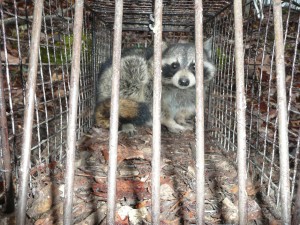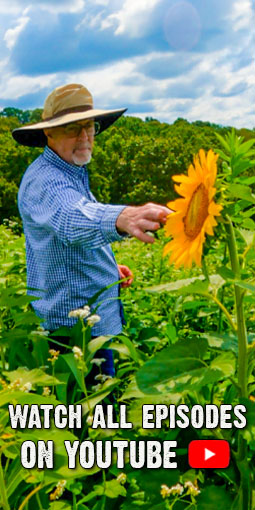Trapping Raccoons to Protect Turkey Nests
Filed under: Hunting Blog
I really enjoy wild turkeys. I enjoy seeing and hearing them. I enjoy calling to them. I enjoy eating them! I like seeing a raccoon, but I get more excited when I see a wild turkey.
Several years ago raccoon pelts sold for $40-$50 each!! Folks hunted and trapped raccoons as it was possible to make a few hundred dollars or more a week! That was a great addition to the average income in those days so many, many folks pursued raccoons! To my knowledge, raccoons were never over harvested, but their numbers were certainly lower than they are now. There’s not much of an incentive to hunt or trap raccoons for their fur as the current prices are generally $10 or less per pelt. Given the current prices of fuel, traps, etc., folks are not financially motivated to harvest raccoons.
There are a few locations where disease has reduced the raccoon population, but in general their populations are high and uncontrolled throughout their range. Raccoons are very effective turkey predators. They will kill adult turkeys, but typically take their largest toll on turkey populations by consuming the eggs. Raccoons have a very good sense of smell. Hen turkeys return to their nest site to lay an egg daily for approximately 10 days (more or less), and then remain on the nest to incubate the eggs for another 28 days.
 Hens smell very strong if they get wet. Even I can smell them! If it rains and the hen gets wet, it’s very easy for predators such as raccoons to smell the hen or where the hen has walked and trail her to her nest. Once the nest is found by a raccoon, the hen is unable to defend it against a raccoon and all eggs are destroyed. Sometimes the hen is killed while attempting to defend her nest and other times she flees.
Hens smell very strong if they get wet. Even I can smell them! If it rains and the hen gets wet, it’s very easy for predators such as raccoons to smell the hen or where the hen has walked and trail her to her nest. Once the nest is found by a raccoon, the hen is unable to defend it against a raccoon and all eggs are destroyed. Sometimes the hen is killed while attempting to defend her nest and other times she flees.
I enjoy trapping and my family really likes pelts!! So it’s a double benefit to engage my family in trapping predators while limiting turkey nest predation by controlling the raccoon population. Trapping can be a great way for the family to enjoy the outdoors together. A few traps can be purchased and used as a learning experience or a more serious approach can be taken in an effort to manage raccoons.
Either way, it’s important for us to be responsible stewards of our natural resources. This means making choices and I choose to favor turkeys rather than raccoons. What’s your choice?
Growing Deer together,
Grant



